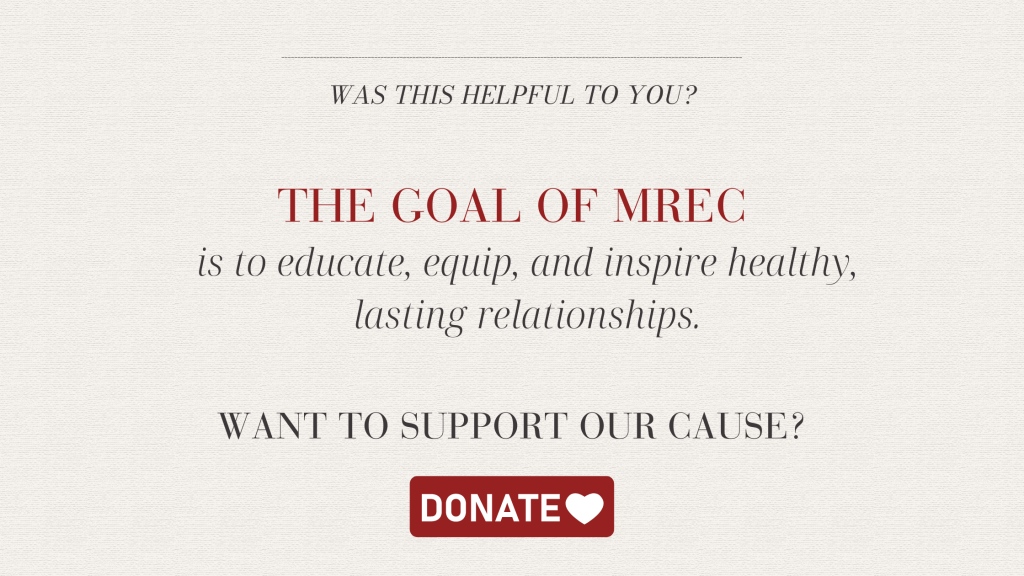- Written by Lois Szymanski, Executive Assistant at MREC
With everything going on in the world, it can be easy to give in to fear and lose hope. But hope matters. Hope inspires us. It’s what moves us forward.
We must hold on to hope.
Looking back at my life, there have been too many times when hope was all I had to cling to, and it started early on. For my six siblings and me, life at home was not easy. To put it mildly, my dad was “rough around the edges.”
As a child, I was terrified of his angry outbursts and the storm that followed. I can remember praying for his demise. Having hope got me through those years.
I married a man who was just like my dad and more dark days stretched ahead. Prayer brought me the courage to leave, and then, to hope again. After I met my husband at work, hope took a backseat once more. I was afraid, too afraid to commit. I am so thankful that he did not give up on me, because now, after 40-some years together, he is a constant reminder of the importance of hope.
Still, even with a fountain of hope in your backyard, curveballs will come.
When I Felt Lost in the Dark
During one dark period, I lost a sister to cancer, followed by both my parents, and then that fall, my twin brother committed suicide on the very day that my 4-year-old granddaughter was having heart surgery.
The angry, hopeless feelings of desertion that filled me during those few dark years seemed overwhelming. Just putting one foot in front of the other while plastering a smile on for others was a heavy task. Yet, along the way, I learned an important lesson – how to find hope.
I found that we do have it within ourselves to find hope, even during the most hopeless days. I learned how to soldier through, and I learned why we must. Others are depending on us. Our children and family depend on us. Our friends do too.
When dark clouds come and a tempest is in the forecast, remind yourself that the sun always shines on the other side of any storm.
Another thing I learned is that nurturing hope fosters a better you. Hope is a proven factor in success, good health, and happiness. It helps us imagine positive outcomes that we can then work to achieve. Hope motivates us to act.
In a 2016 article titled “The Impact of Hope and Resilience on Multiple Factors in Neurosurgical Patients,” written for the US National Library of Medicine at the National Institutes of Health, stated that “Hope and resilience are both stable psychological traits that can act as protective factors against adversity,” and that “Hope and resilience have been associated with better physical and mental health outcomes.”
Hope Makes Us Better Problem Solvers
Did you know that hope even makes us better problem solvers? A 1991 study by Snyder, Harris, Anderson, & Holleran concluded, “better problem-solving abilities have been found in people who are hopeful when compared with low-hope peers.”
Studies like these reassure us that hope is worth pursuing, but even before scientific studies, God promised us hope in multiple verses throughout the bible.
Hebrews 10:23 says, “Let us hold unswervingly to the hope we profess, for he who promised is faithful. Then, Jeremiah 29:11 says, “‘For I know the plans I have for you,’ declares the LORD, ‘plans to prosper you and not to harm you, plans to give you hope and a future.’”
And in Mark 9:23 we learn, “Everything is possible for one who believes,” There are so many more, including, Psalm 9:18 – “God will never forget the needy; the hope of the afflicted will never perish.”
When you feel like all hope is lost, remember, that it’s okay to take time to grieve losses. You can’t switch HOPE on and off like a light switch, but, when you’re feeling hopeless, there are ways to pull yourself out of the funk and find hope.
Try These 10 Hope-Building Exercises
Give these hope-building exercises a try to help you cultivate a life of hope even when things seem hopeless.
1. Think positive
And this is not meant to sound trite. Smiling and intentionally focusing on the good causes your brain to release endorphins which serve as an energy boost.
2. Make short-term goals
Make a to-do list to keep you motivated, adding easily attainable short-term goals, because success builds hope.
3. Celebrate successes
It’s motivational when you acknowledge your achievements. Don’t dwell on the things that don’t work out. Resilience and resolve built through losses are important too.
4. Volunteer
When you focus on others’ needs it helps put your own issues in greater perspective.
5. Focus on role models
When you follow role models who have overcome adversity, their stories can become a source of hope.
6. Look at the big picture
Take a step back and grab a bird’s eye view. It can shed new insight into old problems.
7. Think ahead
Don’t get stuck in the here and now. Few trials last forever.
8. Use inspiration
Surround yourself with the music you love, scriptures, art or photography that inspires you, animals you love, or other things that make you feel good. Read your favorite book again. Watch uplifting movies that show how others have overcome obstacles.
9. Talk about it
Others will see things through a different lens and may be able to help you find sources of hope. Whether it’s a counselor or a friend, more than one viewpoint can help.
10. Be patient
Some things take time to sort out. Give yourself a break and remember that everyone has good days and bad days and that’s normal.
Give Yourself Grace
We know it is not always easy. Cultivating the healing power of hope can be a work in progress. Sometimes it’s two steps forward and one step back. On those one-step-back days, soak in a warm tub, allow yourself a nap, and read words of affirmation, but don’t give up. Hope is just a heartbeat away. You’ve got this!
Here at MREC, we believe in healthy and lasting relationships. Learn more about what we offer on our resources page here.






